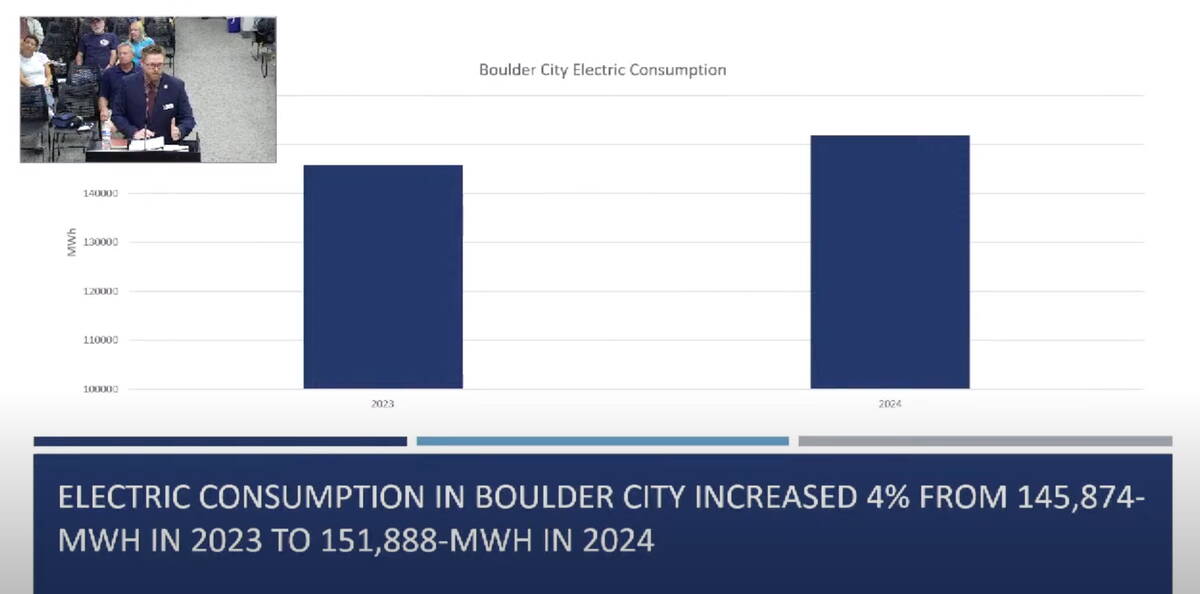Power consumption surges in BC, utility head reports
In the latest of the annual series of reports given to the city council by department heads, Utility Director Joe Stubitz gave an update on the city-owned utilities in the council’s last meeting on Feb. 25. He outlined a number of ongoing projects and a peek at future expected trends. (For a deeper dive into Boulder City water usage, see the related story on this page.)
Among the “wins outlined by Stubitz were:
• A fee structure for the EV charging stations at City Hall
• Partnering with Martha P. King Elementary School for the second annual celebrate Public Power week
• Replacing and upgrading 300 water meters around the city
• Implementing the city’s first outage management system
“An outage management system is something where you could go to online and you could see if there’s any electrical outages in your area and you can report those outages online or via your your smart device,” Stubitz explained.
Under questioning from the council following the presentation, Stubitz explained further, saying that the system works both as an information source and a way for residents to report problems.
“So you won’t necessarily see what caused the outage, but it uses a predictive modeling,” he said. “So if two customers from the same substation circuit, for example, report an outage we know that’s up upstream of a distribution transformer. It will predict we’ve got a problem with this substation circuit and it will highlight orange and once it’s verified in the field by our field crew, it will it will turn red. The whole purpose was to really give customers immediate access but then also increase the reliability and return to service time.”
Moving on to water, Stubitz reported that there were no Safe Drinking Water Act violations in 2024. There was almost 1,300 acre feet of wastewater treated. Unlike the rest of the region, which recycles wastewater, returning it to Lake Mead for future use, most of Boulder City’s wastewater is left in evaporation ponds in the desert. A portion of it is sold to be used in dust control. Stubitz said that a Southern Nevada Water Authority study on other options is still ongoing and that the city was open to additional contracts with anyone who can use “C-grade” water. (This water is not treated sufficiently to use for irrigation and is only suitable for usages such as dust control.)
In addition to water challenges, Stubitz noted increases in both electricity consumption and in the cost of procuring said energy. His department is currently gathering data to be used in a new rate study scheduled for fiscal year 2026 (which begins in July 2025). The last rate study resulted in across-the-board increases in electricity rates.
“We did see an increase in total electric consumption of about 4%,” he told the council. Addressing wholesale cost per megawatt hour, including all resources such as federal hydropower, townsite solar and open market purchases, he said.
“You could see that big spike in what we pay for electricity from ‘23 to ‘24 and then it dips down and now it’s coming back up,” Stubitz said. “So this is concerning to us. We’re out looking for resources that will supplement the loss of capacity at Hoover Dam and looking to to get this wholesale cost back down if possible.”
















